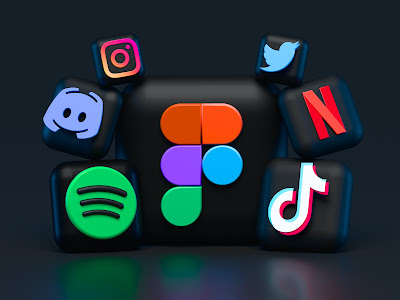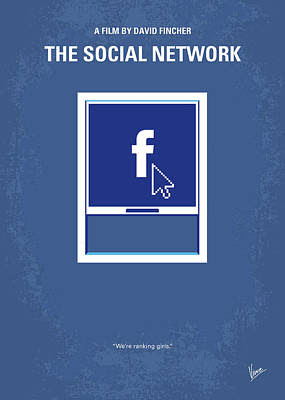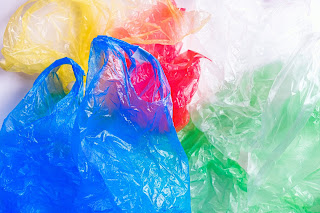Addiction of social media
Introduction
Social media addiction is a growing problem in society. People are spending increasingly more time on social media, which has many negative effects. It affects mental health and sleep quality, makes people feel bad about themselves, and can make them isolated from society.
Addiction of social media
Social media addiction can be a serious problem, especially if you overuse it. The more time spent online, the worse your addiction becomes. Social media has become an essential part of our lives and our health is at risk when we ignore this fact.
Depression: People who are addicted to social media may experience depression because they feel isolated from friends and family members who don't use social media as often as they do. It's also possible that they feel lonely while spending hours on their favorite sites instead of spending time with friends or family members in real life because they're too busy trying out new filters for Instagram pictures or watching videos on YouTube instead of hanging out with people face-to-face!
Anxiety: People who spend too much time looking at photos will start worrying about whether everything looks good enough until eventually he/she starts obsessing over every photo taken by another person (even though these people probably don't care about what their pictures look like). This can lead us down a dangerous path where we become trapped inside our own minds without realizing how far gone we've become until something happens later down the line which forces us back into reality."
Just because
Just because you have a lot of free time, doesn’t mean that you should be spending all of it on social media. You shouldn’t get addicted to social media, but there are some people who do become addicted to their platforms and spend more than they should.
Social media sites are addictive because they give people an opportunity to connect with others in a fun way. People can post pictures of themselves doing things that make them happy, show off their talents and share funny videos from their lives as well as other content that may be helpful for other users looking for advice or information about what life is like at home or work (or school).
Social media sites also provide many ways for users to express themselves: whether via text messaging or posting photos/videos online; sharing links within comments so others know where else one might find something interesting; tweeting updates about what's going on around town while actually getting some exercise during lunch break!
People are spending increasingly more time on social media.
Social media, or the internet as we know it today, has become an integral part of our lives. We spend more time on social media than we do with our friends and family. This means that if you have a problem with your addiction to social media, then it is likely that you are spending too much time online and not enough face-to-face interaction with others in real life.
Social media comparision.
Social comparison sites like Facebook can make people feel bad about themselves. The more you see other people posting pictures of their happy lives, the more you might think that your life is not as good. This can lead to a downward spiral of comparison and self-loathing where even small things like going to church or having lunch with friends don't seem right if they aren't compared with what everyone else is doing.
You might also start comparing yourself with others who have done more than you have and become jealous when they seem to be having better days than yours."
Some studies have also linked heavy social media use to depression and anxiety.
It's never too late to start using social media in a healthy way. If you find yourself spending too much time scrolling through your newsfeed or checking the latest updates on your phone, it may be time to take a break.
Some studies have also linked heavy social media use to depression and anxiety—and it can be hard for people who are already feeling down about themselves to cope with the constant negative comments and feelings of inadequacy that come from being online.
Social media users tend to click, like, subscribe and share without thinking.
Social media users tend to click, like, subscribe and share without thinking. This can cause them to become addicted to social media.
People are more likely to click on things that make them feel good. For example: if you're feeling down or sad, the last thing you may want is more bad news from your friends on Facebook (or any other social network). So instead of scrolling through your feed like normal—and getting depressed—you might just stop scrolling altogether and go back into reality for a while by using another app such as Instagram or Pinterest instead!
People are also more likely than not when sharing content online because it will make them feel good too! For example, if someone posts something funny then all of their friends will see it too; this makes everyone happy because now everyone knows how funny this person is compared with other people who aren't so funny but still post interesting things which could lead us down paths towards finding out more about ourselves before we realize how much time we spend communicating through electronics rather than face-to-face interactions."
Taking a break from social media could improve mental health.
You may have heard the term "addiction" before, but you may not know exactly what it means. Addiction is when a person can't stop doing something they enjoy doing. It's also when you want to do something so much that it becomes difficult for your brain and body to function normally without doing that thing.
Social media makes people feel bad about themselves because there's always someone who has less than them or worse things happen to them on social media than actually happened in real life. This makes them feel depressed or anxious which causes them not only lose interest in their favorite social networks but other activities as well!
People should reduce the time spent on social websites.
Get rid of social media apps from your phone.
Set a time limit for using social media, like 30 minutes or an hour.
Try to spend more time with friends and family.
Spend more time doing things that you enjoy instead of checking Facebook or Instagram every five minutes (like playing tennis).
Try to get off the phone or computer after a certain amount of time has passed since starting work/school (e.g., if you start work at 9am and leave at 3pm, try not using any apps until 3pm).
Overemphasis on social information sites.
Social media addiction is a serious problem. It can be addictive, and it can interfere with daily life. Social media has been linked to depression and anxiety, as well as mental health problems like mood swings or even suicidal thoughts in some people who spend too much time on their phones.
It’s important to keep in mind that social media isn't the only factor that affects sleep quality—it's just one of many factors! So if you're thinking about quitting social media for good because of how hard it makes your body feel when scrolling through endless newsfeeds or posting pictures on Instagram all day long...don't worry about it yet! Just focus on getting yourself healthy first before making any drastic changes at all :)
Information overload
You might feel like a fish out of water when it comes to social media. You see people living their best lives on Instagram and Snapchat, but you can't seem to get into the same rhythm. You feel like you're missing out on the fun—and maybe even more importantly, that your friends are missing out on something important too! It's easy to get overwhelmed by all the information available online: Facebook updates, Twitter feeds, Instagram stories...the list goes on and on.
Overwhelm is one thing; addiction is another story altogether.
Social media addicts become more isolated from society.
Social media addicts are more likely to be isolated from society. They tend to participate less in social events and activities, such as playing sports or attending church. Social media addicts may also feel less connected with their friends and family members because of the amount of time spent online.
Social media addicts are also more likely to withdraw from real-world interactions by avoiding them altogether: when they do interact with people face-to-face, it's often only online through phone calls or video chats (which can take away from conversation).
Affects mental health and sleep quality.
Social media addiction can lead to anxiety and depression, which can in turn affect your sleep quality. If you experience these symptoms often, it’s a good idea to talk about them with a doctor.
If you're suffering from insomnia due to social media addiction, try taking a break from the internet for one hour every day before bedtime. This will help clear out any stressors that may be contributing to sleepless nights—and it'll give your brain time for rest as well!
Negative Effects
Addiction to social media has many negative effects. Social media addiction is a real problem, with some people being addicted to it more than others. People who are addicted can experience depression and anxiety, as well as low self-esteem and poor body image because they feel so isolated from their friends and family members.
Social media addiction can also be an issue at school or work where there are no filters between the world we see online and our real lives in public spaces like classrooms or offices—and where we may not even know how much time we spend on sites like Twitter or Facebook until someone points out that you've been gone for hours without saying goodbye!
Opening a social media Application.
Social media addiction is a real problem.
Social media addiction is a growing problem.
Social media addiction is a serious issue.
Social media addiction is an epidemic that affects millions of people worldwide and is becoming more prevalent in our society today than ever before!
Using it for an hour or more.
If you spend more than an hour on social media, it can have a negative impact on your mental health. The more time you spend using it, the more likely it is that you will develop depression and anxiety. This is because social media tends to make people feel isolated from society, which leads them to feel lonely.
It also makes people dependent upon their devices for stimulation as they scroll through feeds full of photos and videos that can't be shared with others in person (or even by phone). These feelings of isolation lead many individuals who use social media compulsively into addiction—and if this happens repeatedly over time, then eventually those struggles become overwhelming enough for them not only stop using their phones all together but also begin experiencing withdrawal symptoms when they try going without any kind of connection whatsoever!
Feeling bad about yourself
If you feel like your life is going nowhere, that you're not good enough, or even worse—that there's something wrong with you because of how much time and energy you spend on social media. You might feel like the world would be better off without your presence in it. This can lead to feelings of low self-esteem and loneliness which then makes people less likely to seek help for addiction issues they're having online (because they don't want others seeing their posts).
Having self-control
Self-control is a skill that can be learned, and it's not just confined to the realm of personal development. Self-control helps you achieve your goals in life.
You've probably heard it before: "If you want something done right, do it yourself." And while that may sound like a good rule of thumb for most things in life, it doesn't apply when it comes to social media addiction. The problem with these apps is that they're designed to keep us constantly connected—and without any thought or effort required on our part. When we're constantly checking our phone or laptop screen (or even worse—a TV), we're missing out on opportunities for self-improvement and growth as individuals—and this can lead directly back into addictive behavior patterns!
Conflicting with real life activities
There are a lot of reasons why people start using social media. Some do it because they need to get away from their day-to-day lives, while others use it as a way to connect with friends and family. But even if you have no intention of becoming addicted to social media, there are still some potential risks that come along with the benefits:
Social media can be addictive if used excessively.
It can make you feel bad about yourself if your posts don't go viral or aren't liked enough.
It may isolate you from society by keeping you in front of a screen all day long instead of interacting with others face-to-face or meeting up with them when possible (this is especially important for teens who have less control over their time).
Independently and being bored
Social media is a form of entertainment. It can be used to keep in touch with friends and family, share photos, make new connections and learn about the world around you.
Social media has become an important part of our daily lives because it allows us to communicate with people all over the world who share similar interests. For example, if you're interested in fashion or sports then there's a good chance someone else shares those same interests as well! This makes it easier for us all to connect with each other on these platforms than before when we had less access (or none at all).
We use social media sites like Facebook so that our friends who aren't close by can reach out just as easily as those who are nearby - whether they live next door or across town! Social networks like these allow users' personal profiles pages where they can upload photos/videos etc., write posts about what they're doing currently while also sharing links back onto other sites such as Twitter where followers follow back one another automatically after clicking onto certain tweets."
Feeling lonely
If you're feeling lonely, social media can be a great way to connect with others. But there's also a risk that it can make you feel worse about yourself and your life in general. When people are lonely and isolated, they are more likely than others to use social media as a means of escape from reality.
Social media is often used as a tool for self-expression; however, this often leads users down rabbit holes of comparing themselves against their peers—often leading them into depression when they realize how far behind everyone else is compared to them due their lack of time spent on social media compared with those around them who spend hours per day scrolling through feeds and commenting on posts ranging from funny memes all the way up through political statements made by celebrities or politicians (who have dedicated their lives towards promoting policies concerning issues affecting society).
Negatively impacts relationships
Social media can be a great way to keep in touch with friends and family, but it can also have a negative impact on relationships. When you're constantly checking your phone or scrolling through social media, it becomes difficult to put down the phone and actually talk with people face-to-face. You might feel like there's no one around who cares about what's going on in your life as much as you do, so why bother trying?
In fact, research suggests that social media addiction is linked with depression, anxiety and even substance abuse problems—and these issues often lead back again: If someone who suffers from an addiction moves away from their device for just an hour or two (or longer), they'll find themselves craving those comfort foods again!
People should spend less time with their phones and more time doing things that are beneficial to their lives
If you want to avoid the negative effects of social media and spend more time doing things that are beneficial to your life, here are some suggestions:
Spend less time with your phone. The first step is to put it down and look around at what's happening in real life. This will help make sure you're not missing anything else that's important or worth doing.
Spend more time with friends and family members who aren't addicted themselves (or at least not as much). You'll probably have fewer opportunities for conversation—but those conversations will likely be more meaningful because they're not focused on technology instead of each other!
Do some hobbies or activities that don't involve technology like reading books or learning new skills from another person who has expertise in these areas--this can also help keep away from addiction by keeping one's mind occupied while still giving them something fun/interesting/challenging/challenged etcetera...
















No comments:
Post a Comment
Please do not enter any spam link in the comment box